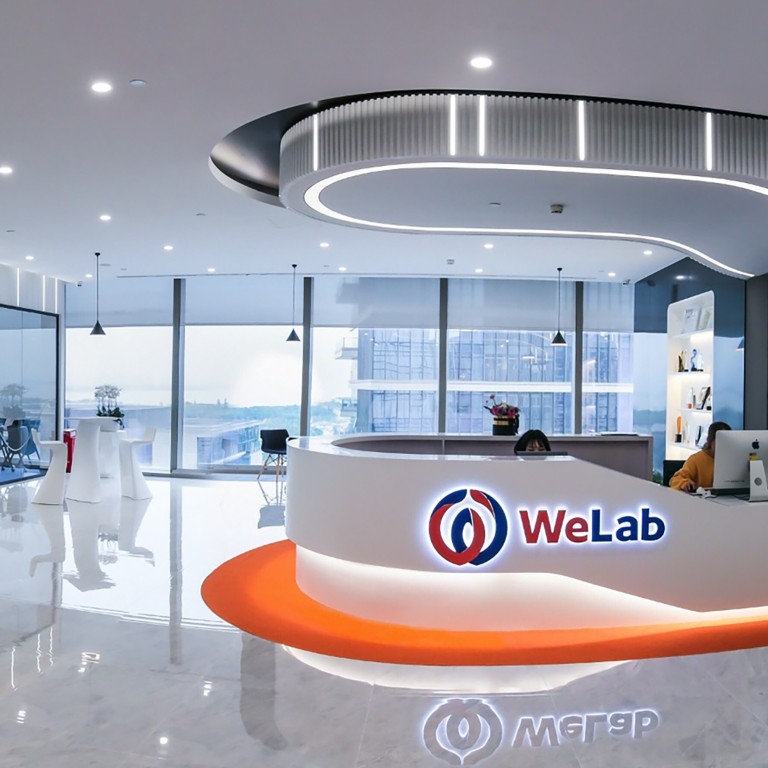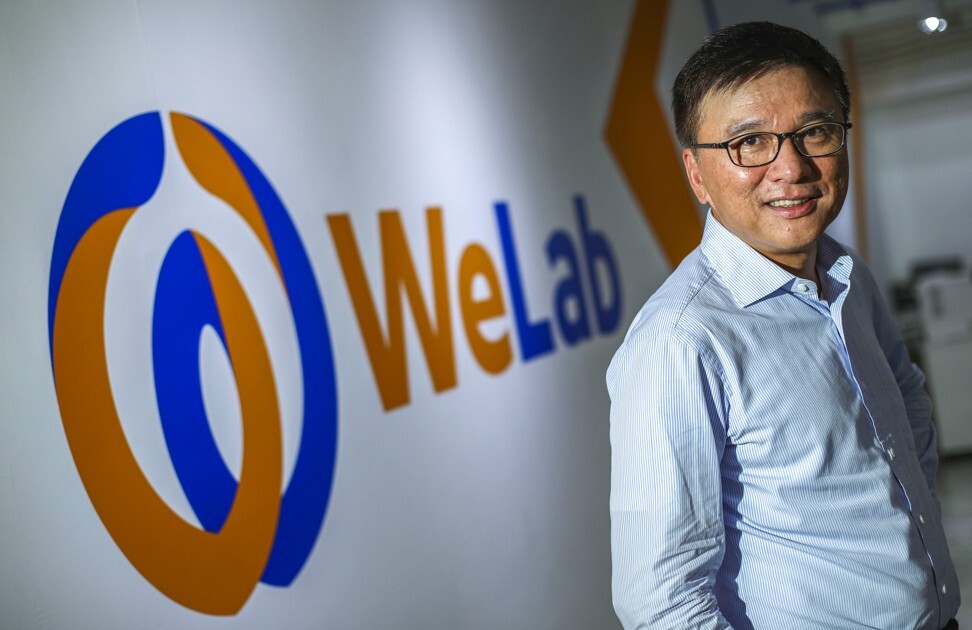
WeLab takes its virtual banking battle to Hong Kong’s bricks-and-mortar lenders with higher rates, rebates in opening salvo
- WeLab is the third virtual bank to open for business at a time when the Covid-19 pandemic is giving digital banking a huge boost
- Newest player enters an overcrowded market with 155 traditional lenders and eight virtual banks serving a city of 7.5 million people
WeLab Bank opened for business today after a three-month trial by dangling a 4.5 per cent annual rate on deposits from as little as HK$10 (US$1.30), it said on its debut. The firm will also offer a juicy time-limited 8 per cent rebate on customer spending.
“The Covid-19 pandemic offers opportunities and challenges,” chief executive Adrian Tse said during an online briefing. “It has forced many people to work and shop from home. Many people are more comfortable using their mobile phones to open an account and conduct banking transactions.”
HSBC, Standard Chartered among 11 banks to curtail opening hours, close 59 branches
The heightened competition comes at a difficult time for the incumbent lenders, as a third wave of Covid-19 infections in Hong Kong forced dozens of them to shorten the banking hours at their branches, or temporarily shut them, to help contain the outbreak.

WeLab chairman Chan Ka-keung, the city’s former Secretary for Financial Services and Treasury, said the firm aims for financial inclusion by extending its 4.5 per cent promotional rates to big and small depositors alike. That, however, is good for the first 10,000 customers with up to HK$50,000 each in placements.
It is also offering a debit card for customers to withdraw cash from more than 2,000 ATM machines maintained by Jetco. The 8 per cent rebate, however, is capped at HK$3,000 worth of spending until the end of August.
HSBC offers 1 to 4 per cent rebates on credit-card transactions, while Standard Chartered’s rebates are between 1.5 per cent and 2 per cent. Their offers, however, are year-round without transaction limits.
“We want to offer a high deposit rate and cash rebate to help customers better cope with the Covid-19 outbreak,” Chan said. “Hong Kong residents can earn more by saving their cash handouts with WeLab or by spending with our debit card.”
New Hong Kong virtual lender Ping An OneConnect, HSBC ease banking processes in battle for SME sector
The Hong Kong Monetary Authority (HKMA), the city’s de facto central bank, issued eight virtual bank licences in 2019 to inject innovation and competition into the industry. The other five, Mox, Ant Bank, Livi, Ping An OneConnect, and Fusion Bank, are still conducting their trial runs.
Airstar also offered a 3.6 per cent rate on savings up to HK$20,000 for new customers, while ZA Bank offered 6.8 per cent for the first 50 customers in their opening gimmicks.
“All the virtual banks which have launched to date have, understandably, focused on customer acquisition in the form of promotional discounts, time-limited interest rates, referral bonuses, and so on,” said James Lloyd, a partner at advisory firm EY.
“The real challenge will be engaging customers beyond these initial launch offers,” he added. “Right now, we believe that only a handful of new players will truly be able to differentiate.”

